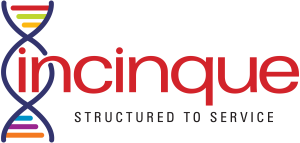Digital marketing refers to all online efforts to promote your real estate business. It includes techniques like search engine optimization (SEO), social media marketing, email marketing, and more. These techniques work together to improve your web presence, attract leads, and eventually turn them into customers. Using the right approach, digital marketing may help your brand become more recognizable and trustworthy to potential customers.
In the real estate industry, digital marketing is more than simply having an online presence, it is also about providing an interesting and dynamic experience for your target audience. Effective digital marketing methods allow you to develop reputation in your sector, build long-term relationships with your audience, and ultimately generate sales for your real estate business. By combining content marketing, SEO, and social media, you can develop a holistic plan that tackles all stages of the buyer’s journey, from awareness to decision-making.
The Importance of SEO for Real Estate
SEO is important for making sure your real estate website is visible in search engine results. When your clients look for properties or real estate agents in your area so they visit your website.
By optimizing your website with relevant keywords, such as “real estate digital marketing ideas” and “local SEO for real estate”, you can improve your website’s visibility and attract more organic traffic. The higher your website ranks on search engines like Google, the more likely you are to gain exposure to potential clients.
SEO is more than simply keyword stuffing, it’s about producing useful content that helps the issues your potential customers are facing right now. In SEO, includes optimizing your website’s structure, improving user experience, and making your website mobile friendly.
Local SEO is very useful for real estate professionals since it allows you to target clients in specific geographic locations. Claiming your Google My Business listing and encouraging satisfied customers to submit reviews can also help your local SEO efforts, increasing your business’s visibility in local searches.
Leveraging Social Media for Real Estate Marketing
Social media platforms are powerful tools for real estate professionals in this digital world. Platforms like Facebook, Instagram, and LinkedIn allow you to engage with your potential clients, showcase properties, and build your brand. Here are some tips for using social media platform for your business:
- Post in your Social media high-quality photos and videos of your property. Visual content is king on social media, and real estate is no exception. Attractive images and virtual tours can significantly boost engagement and interest in your properties.
- In social media, you need to post regularly to keep your audience engaged. Consistency is key to maintaining visibility and keeping your audience informed about your latest Houses and flats and market insights.
- Use relevant hashtags to real estate to increase your reach. Hashtags make your content visible to a broader audience interested in real estate.
- Need to engage with your audience by responding to comments and messages immediately. Social media is a two way street, and active engagement can build stronger relationships with your potential clients, fostering trust and loyalty.
Real Estate Lead Generation Strategies
Generating leads, it is an important component of any successful real estate business. Here are some digital marketing strategies to help you generate more leads:
Creating Compelling Content
Establish your real estate expertise and connect with new clients through strategic content marketing. By creating valuable content, such as blog posts, videos, and infographics, you can provide useful information to your audience and encourage them to engage with your brand. Content that addresses common questions, offers insights into market trends, or provides tips for buyers and sellers can position you as a trusted resource.
Furthermore, including storytelling into your video can help it become more relatable and memorable. Sharing your success stories from your previous clients or distinctive aspects of an area can appeal to future clients, allowing them to realize the benefits of working with you. Regularly updating and improving your content for SEO makes sure that it stays relevant and attracts traffic over time.
Real Estate Video Marketing
Video marketing is important and powerful in real estate. Create virtual tours, property displays, and client testimonials to help potential clients get a better sense for the homes you represent. Videos can be published on your website, social media sites, and even email marketing campaigns to increase their reach. High quality videos can better portray the mood of a property than static photographs, resulting in a more immersive experience.
Implementing Marketing Automation
Marketing automation software can streamline your marketing efforts by automating repetitive tasks like email marketing, social media posting, and lead nurturing. By using marketing automation, you can ensure that you consistently engage with leads and clients, ultimately increasing your chances of converting them into buyers or sellers. Automation tools can segment your audience based on their behaviors and preferences, enabling more personalized and relevant communication.
Moreover, marketing automation provides valuable insights through analytics, helping you measure the success of your campaigns and make data driven decisions. By understanding which strategies yield the best results, you can continuously refine your approach, ensuring your marketing efforts are both efficient and effective.
Utilizing Email Marketing
Email marketing remains one of the most effective digital marketing strategies for real estate professionals. By sending personalized emails to your leads, you can nurture relationships and keep them informed about new listings, market trends, and other valuable information. Consider segmenting your email list to send targeted content to different groups of leads, ensuring that your messages are relevant and engaging.
Furthermore, using email automation, you can set up drip campaigns that guide leads through the buyer’s journey, from initial interest to final decision. Personalized content and timely follow-ups can significantly increase your conversion rates, turning leads into loyal clients. Regularly analyzing your email campaign performance helps you adjust your strategies to improve open rates, click-through rates, and ultimately, conversion rates.
Trends in Digital Marketing for Real Estate
As digital marketing evolves, it’s essential to stay up-to-date with the latest trends to remain competitive in the real estate industry. Here are some emerging trends to consider:
Embracing Virtual and Augmented Reality
Virtual and augmented reality technologies are transforming the way real estate professionals showcase properties. By offering virtual tours and interactive experiences, you can provide potential clients with a more immersive way to explore properties from the comfort of their own homes. This technology not only saves time for both parties but also attracts tech-savvy clients who appreciate innovative solutions.
Augmented reality can also enhance physical property viewings by overlaying digital information onto real-world environments. This can include details about a property’s features, nearby amenities, or even renovation possibilities, providing a richer, more informative viewing experience. Staying at the forefront of these technologies can position your real estate business as modern and forward-thinking.
Focusing on Local SEO
Local SEO is a critical component of any real estate digital marketing strategy. By optimizing your website for local search terms and ensuring your business is listed on local directories, you can attract more local clients and improve your visibility in search engine results. Local SEO strategies also involve creating content that resonates with the local community, such as neighborhood guides, local market reports, and community events.
Building partnerships with local businesses and participating in community events can further strengthen your local SEO efforts. Additionally, encouraging satisfied clients to leave positive reviews on platforms like Google and Yelp can enhance your reputation and influence potential clients’ decisions.
Implementing Chatbots.
Chatbots are becoming increasingly popular in the real estate industry. By integrating chatbots into your website, you can provide instant responses to potential clients’ inquiries, improving their experience and increasing the likelihood of converting them into leads. Chatbots can handle a range of tasks, from answering frequently asked questions to scheduling property viewings, freeing up your time for more complex interactions.
Moreover, chatbots can gather valuable data about user preferences and behaviors, helping you tailor your marketing strategies and improve customer satisfaction. As artificial intelligence continues to advance, chatbots will become even more sophisticated, offering personalized experiences that enhance client engagement and streamline the buying process.
Conclusion
Digital marketing is an essential tool for real estate professionals looking to attract clients in the USA. Digital marketing for real estate involves implementing strategies like SEO, social media marketing, content marketing, and marketing automation to increase your online presence, generate more leads, and convert those leads into clients. These strategies not only help you reach a wider audience but also build stronger, more meaningful relationships with your clients.
Stay ahead of the competition by embracing the latest digital marketing trends and continuously refining your strategies to achieve success in the real estate industry. As technology evolves, so too should your marketing efforts. By remaining adaptable and open to new ideas, you can ensure your real estate business thrives in an ever-changing digital landscape.







